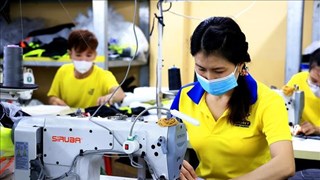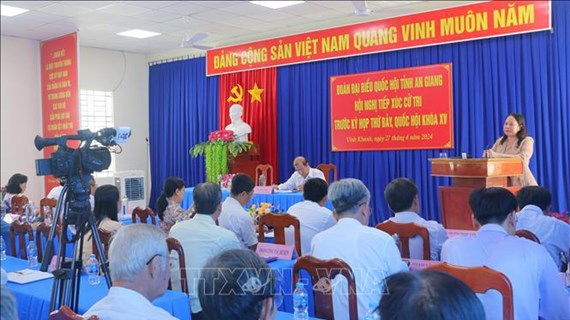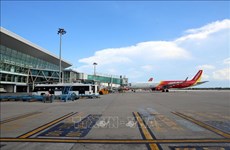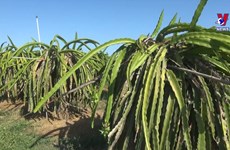Bamboo diplomacy - A legacy of Vietnam
Since the Party launched the reform policy in 1986, Vietnam has experienced a remarkable transformation, from an isolated and food insufficient country, to a rising player in the international arena.
Today, Vietnam boasts official diplomatic ties with 192 countries worldwide, as well as trade relations with 230 countries and territories.
Carl Thayer - Emeritus Professor at University of New South Wales, Canberra
Behind these accomplisments is the application of Vietnam’s bamboo diplomacy. This concept was first introduced by General Secretary Nguyen Phu Trong at a diplomatic conference in 2016, and has since reiterated as the guiding principle for Vietnam’s foreign policy. It is a metaphor that allows for the expression of complex ideas in a simple language. Bamboo is known for its resilience. It can be knocked down, battered by the wind, and even bent, but it keeps growing and persevering.
Phan Xuan Dung - Research Officer at Vietnam Studies Programme, ISEAS-Yusof Ishak Institute
Bamboo diplomacy is a suitable concept for promoting Vietnam’s diplomatic identity in the current context. It is appropriate because the image of bamboo is deeply ingrained in Vietnamese culture, values, and diplomatic traditions. Bamboo grows in groups and is stronger when standing together. It reflects the importance of collective strength and unity of Vietnamese people.
To understand the rationale behind Vietnam’s bamboo diplomacy, it is crucial to grasp the country’s long struggle for national independence.
Vietnam’s history of resilience and ability to withstand external pressure has a role to play in shaping the country’s bamboo diplomacy.
Yoichiro Sato - Professor at Ritstumeikan Asia Pacific University
Throughout its national history, Vietnam has faced multiple foreign powers and other challenges, yet the country has managed to survive and maintain its independence. Given that, it is understandable why bamboo diplomacy became an important part in Vietnamese culture.
Vietnam has emerged as a growing middle power in recent years. It was ranked 12th out of 26 countries in terms of comprehensive power in Asia in 2022, unchanged compared to the previous year, as reported by the latest Asia Power Index 2023.
Stephen Nagy - Professor at International Christian University, Tokyo
If we use data sets like the Lowy Institute’s Asia Power Index, it’s clear that Vietnam is a middle power in terms of its overall resources, population, economic size, and diplomatic power. Vietnam has undertaken some economic reforms over the past 40 years to attract overseas development aids, as well as foreign direct investment to position itself as a new manufacturing hub in Southeast Asia. The move contributes to increasing prosperity and accelerating the development of Vietnam.
Apart from economic achievements, Vietnam has also been attracting a large number of foreign visitors. This is a crucial element in Vietnam's bamboo diplomacy.
Carl Thayer - Emeritus Professor at University of New South Wales, Canberra
I’ve come to visit Vietnam many times, and I think Vietnam has been successful in building strong bonds with people from different countries, based on the appeal of Vietnamese culture, politeness, and cuisine. This soft power approach is a key component of Vietnam's bamboo diplomacy, which emphasizes the need to build positive relationships with other countries and foster mutual understanding and respect.
In a more rapidly-changing world, Vietnam is likely to encounter a variety of challenges, such as global geopolitical tensions and economic slowdowns. However, building on the achievements of bamboo diplomacy, Vietnam is committed to continuing this approach as a distinctive foreign policy. By doing so, Vietnam is positioning itself as a rising player in the international arena and charting a path towards a brighter and more prosperous future./.













